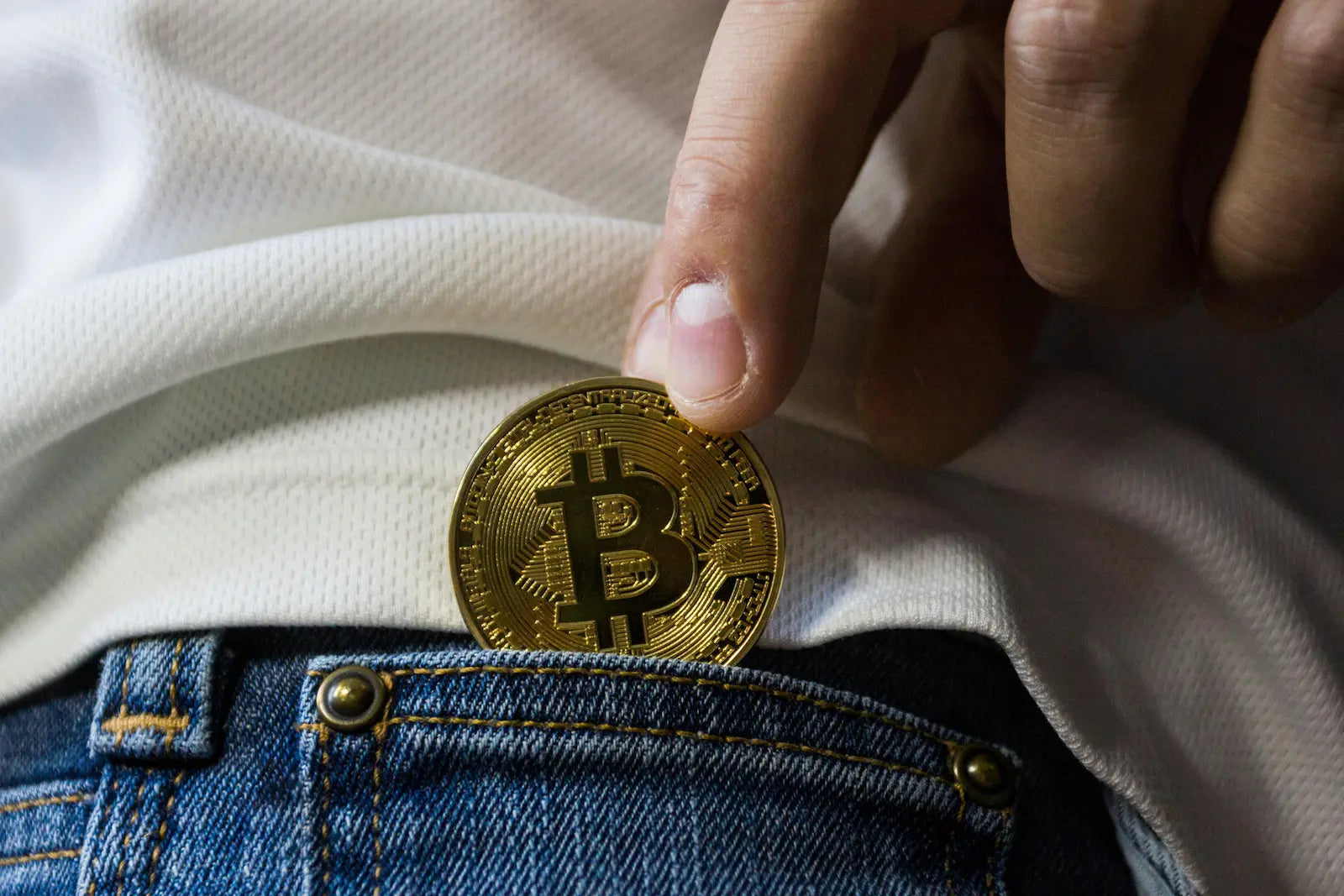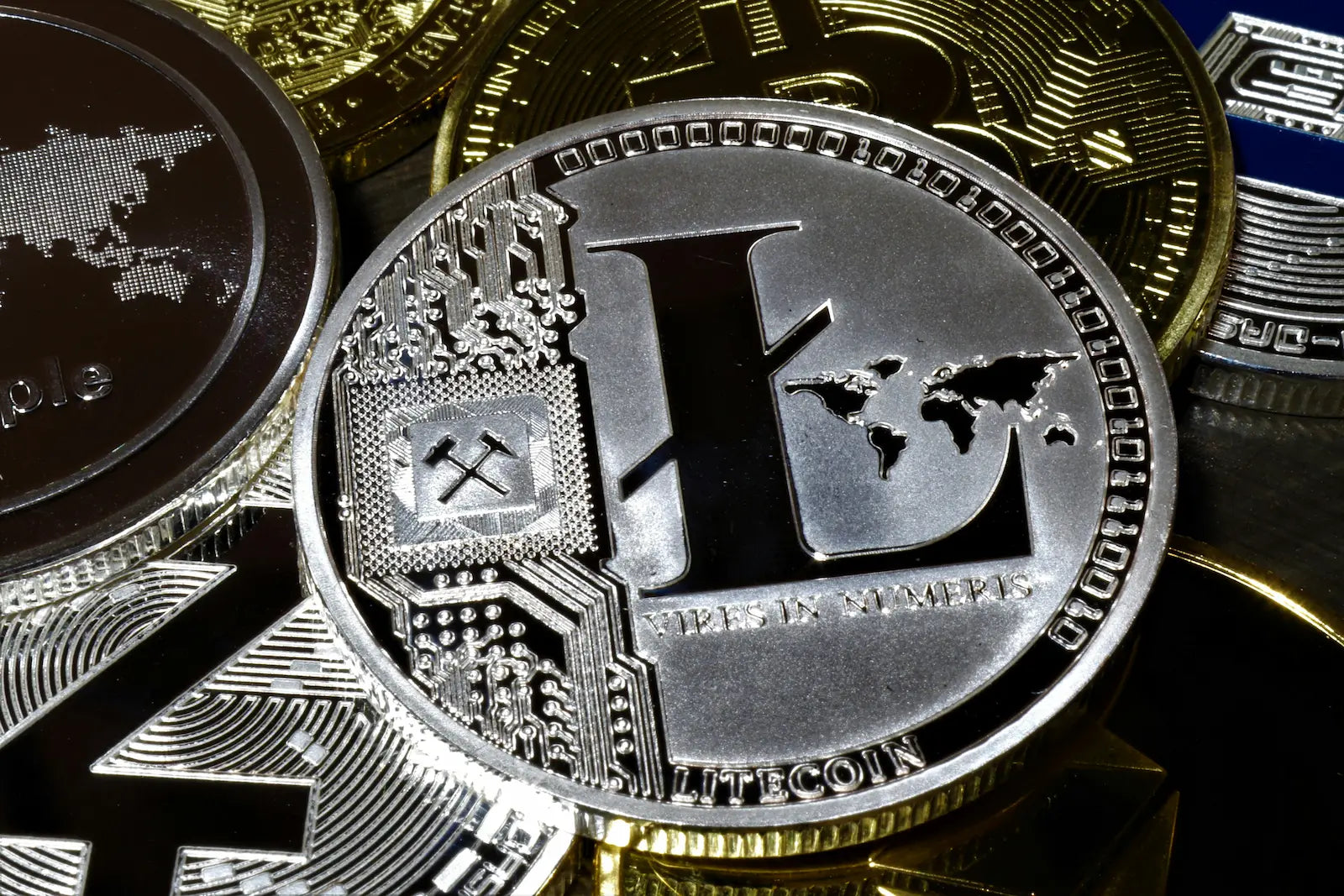Bitcoin: An introduction to the digital currency of the future

How it all began and what it means today
Bitcoin is a digital currency introduced in 2009 by an unknown person or group under the pseudonym Satoshi Nakamoto. This cryptocurrency is based on blockchain technology, a decentralized network that records transactions securely and transparently. Unlike traditional currencies, Bitcoin is not controlled by a central bank, but is managed by a network of computers worldwide.
The basics of blockchain technology
The blockchain is the heart of Bitcoin. It is a public, decentralized ledger that stores all transactions. Each transaction is collected in a "block" and added chronologically to a chain called the blockchain. This technology ensures that transactions are immutable and transparent, which increases trust in the system.
How does Bitcoin work?
Bitcoin transactions are verified by a network of computers called "nodes." These nodes use complex mathematical algorithms to verify the authenticity of each transaction. Once a transaction is confirmed, it is added to the blockchain and cannot be reversed.
The history and development
Bitcoin has undergone remarkable development since its launch. Originally conceived as a response to the global financial crisis of 2008, Bitcoin aims to provide an alternative to traditional financial systems.
The early years: From the white paper to the first transactions
In 2008, Satoshi Nakamoto published the Bitcoin white paper, which explains how Bitcoin works and the philosophy behind it. The first Bitcoin transaction occurred in January 2009, when Nakamoto created 50 Bitcoins, the so-called "Genesis Block."
Bitcoin as an asset class
In recent years, Bitcoin has become a significant asset class. Many see Bitcoin as a type of digital gold that serves as a store of value. Institutional investors and large corporations have started adding Bitcoin to their portfolios, further increasing the trust and value of the cryptocurrency.
Bitcoin ETF Approval: A Turning Point
The importance of the Bitcoin ETF
A significant milestone in the development of Bitcoin was the approval of the first Bitcoin exchange-traded fund (ETF) by the U.S. Securities and Exchange Commission (SEC). Launched by BlackRock, one of the world's largest asset managers, this Bitcoin ETF allows investors to invest in Bitcoin without having to directly purchase and hold the cryptocurrency.
Advantages of the Bitcoin ETF
The approval of the Bitcoin ETF offers several advantages:
- Access for traditional investors: The ETF now gives traditional investors who previously did not want to deal with the technology and specific risks of Bitcoin the opportunity to invest in Bitcoin.
- Increased liquidity: The Bitcoin ETF helps increase the liquidity of the Bitcoin market, making trading easier and more cost-effective.
- Market confidence: The approval of the ETF by regulators adds legitimacy and trust to Bitcoin as an asset class.
Impact on the Bitcoin market
The launch of the Bitcoin ETF has further legitimized the market and increased the acceptance of Bitcoin as a serious form of investment. This could lead to a further increase in the Bitcoin price and attract more institutional investors.
Benefits and challenges
Advantages of Bitcoin
- Decentralization: Bitcoin is not controlled by a central authority, which reduces the risk of manipulation and inflation.
- Transparency and security: Thanks to blockchain technology, Bitcoin transactions are transparent and tamper-proof.
- Low transaction costs: International transfers with Bitcoin are often cheaper and faster than traditional bank transfers.
Challenges and risks
- Volatility: The Bitcoin price is known for its extreme volatility, which can make investing risky.
- Regulation: The legal status of Bitcoin varies around the world, and future regulations could affect its use.
- Security concerns: Despite the security of blockchain technology, there are risks associated with storing and trading Bitcoin.
Buy and store Bitcoin
Where can you buy Bitcoin?
Bitcoin can be purchased on various platforms, including cryptocurrency exchanges such as Coinbase or Binance. These exchanges allow users to buy Bitcoin with traditional currencies such as US dollars or euros.
Safe storage of Bitcoin
It is important to keep Bitcoin safe to minimize the risk of theft or loss. There are several types of Bitcoin wallets, including:
- Hardware wallets: Physical devices that are stored offline and offer high security.
- Software wallets: programs or apps that are installed on computers or smartphones.
- Paper wallets: Physical printouts of the private keys required to access Bitcoin.
Where is Bitcoin heading?
Bitcoin and the global economy
Bitcoin has the potential to revolutionize the global economy by providing an alternative store of value mechanism and a new payment system. Many experts believe that Bitcoin will continue to gain prominence in the coming years.
Technological developments and innovations
The Bitcoin community is constantly working on improvements to the technology. Projects like the Lightning Network aim to increase the scalability and speed of Bitcoin transactions, which could further spread the use of the cryptocurrency.
Impact on traditional financial systems
The introduction and acceptance of Bitcoin could have a significant impact on traditional financial systems. Banks and financial institutions may need to adapt their services to keep up with the growing popularity of cryptocurrencies. This could lead to greater integration of blockchain technologies into existing financial infrastructures.
Bitcoin: Between volatility and stability - A summary
Bitcoin has evolved from a technological novelty to a significant asset class and a potential driver of economic change. BlackRock's approval of the Bitcoin ETF marks another important step in the recognition and integration of Bitcoin into the traditional financial system. Despite the existing challenges, Bitcoin offers numerous advantages that make it a fascinating innovation in the financial world. For investors, technologists and the general public, Bitcoin remains an exciting and dynamic field to watch.
Note : This blog post is for informational purposes only and does not constitute financial advice. Investing in cryptocurrencies involves risks and it is important to do your research before making any investment decisions.
Are you interested in Bitcoin mining or other cryptocurrency projects?
Our experts at Blockmine are available to answer your questions and assist you with your investment decisions. Contact us for a no-obligation consultation and find out how you can benefit from the opportunities in Bitcoin mining.
Book a consultation now























